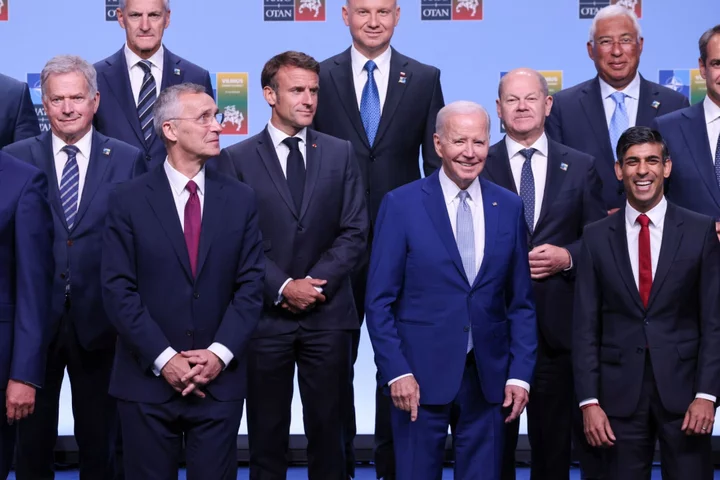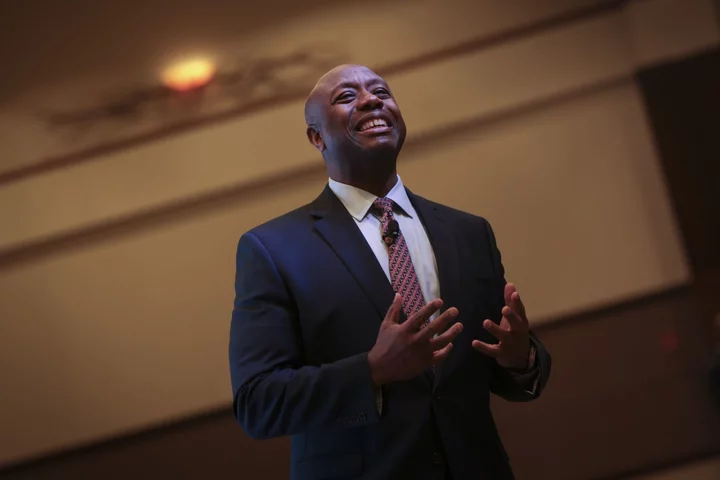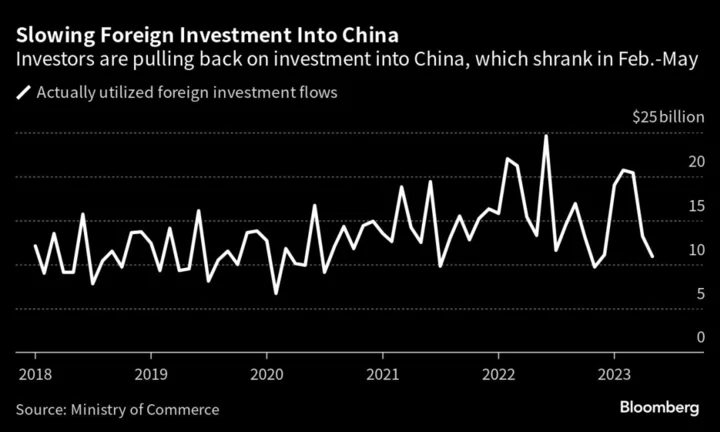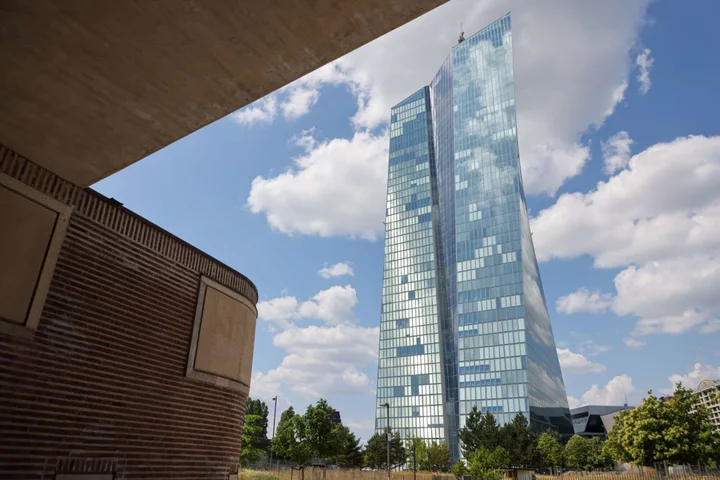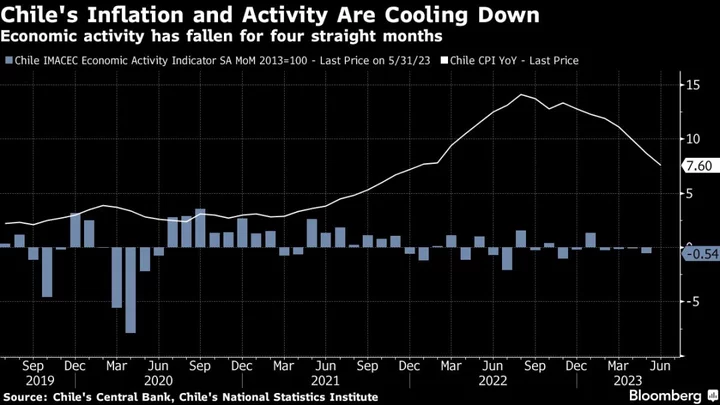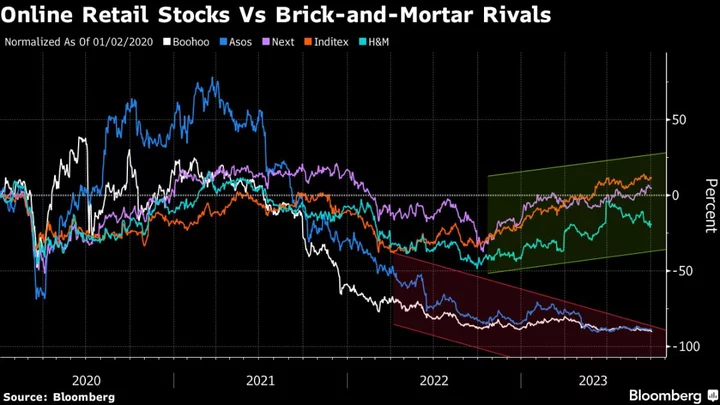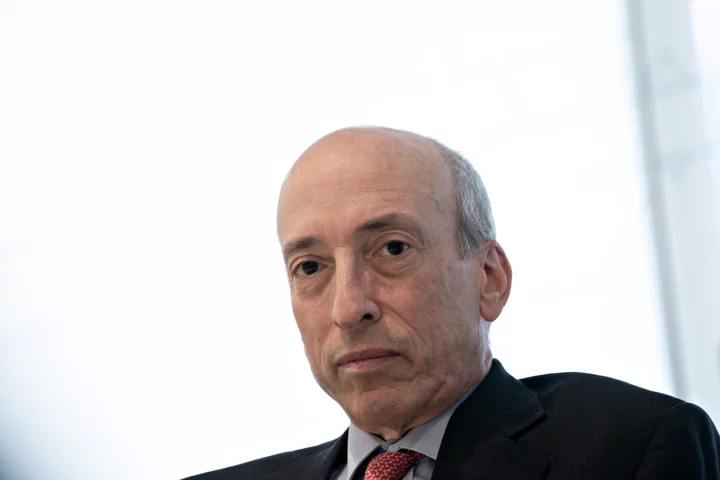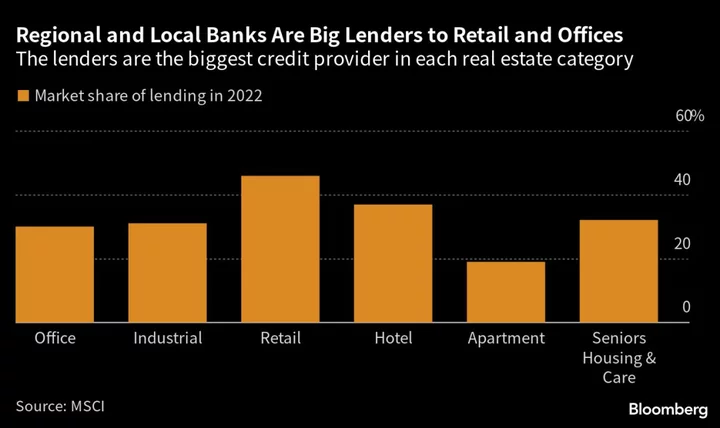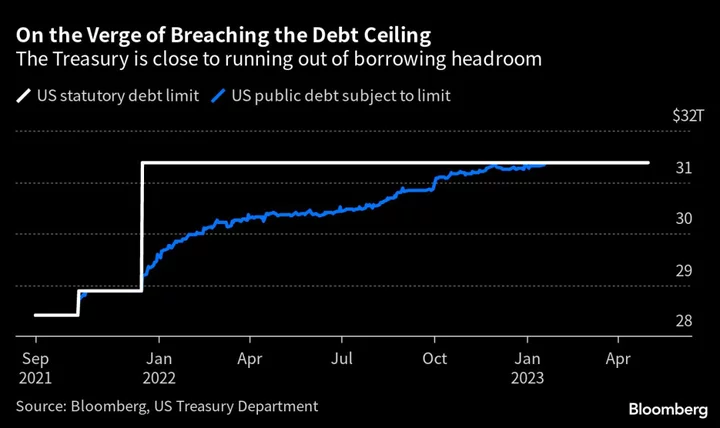Ukrainian President Volodymyr Zelenskiy said he plans to “fight” for more security guarantees from allies as Group of Seven countries will announce later Wednesday that they’re launching individual negotiations with Ukraine to offer bilateral commitments to boost Kyiv’s defense capabilities and deter further Russian aggression.
The declaration will come on the sidelines of the second day of the NATO leaders’ summit in Vilnius, where the defense alliance agreed on package of measures aimed at deepening ties with Kyiv and underlining the alliance’s long-term support. The allies pledged multi-year assistance to Ukraine; created a new NATO-Ukraine Council, which will meet later Wednesday; and sped up the process that will allow Ukraine to join NATO.
US President Joe Biden will meet with Zelenksiy, who criticized the North Atlantic Treaty Organization on Tuesday for not having set a clear timeline for Ukrainian accession.
Latest Coverage:
- NATO to Offer Ukraine Fast Path to Join When Conditions Met
- Turkish Assets Jump as Erdogan Tilts Toward NATO Deal
- G-7 Nations to Give Individual Security Pledges to Ukraine
- Turkey Agrees to Back Sweden’s NATO Bid in Boost to Alliance
- Europe Can’t Supply Ukraine With Weapons Fast Enough, Here’s Why
All times local in Vilnius, CET + 1 hour:
Zelenskiy Says He Will ‘Fight’ for Security Guarantees (10:15 a.m.)
Zelenskiy said he will discuss with NATO’s allies security guarantees for Ukraine while it seeks membership in the bloc.
“We want to be on the same page with everybody with all the understanding” regarding invitation to join NATO, Zelenskiy told journalists Wednesday in Vilnius, Lithuania, when he arrived for talks. “We will speak and fight for this — security guarantees for Ukraine on the way to NATO.” He also said he plans to discuss new weapon packages with partners.
UK Says Security Declaration Sends Signal to Putin (10:10 a.m.)
UK Prime Minister Rishi Sunak, who is due to meet Zelenskiy on Wednesday, said “this declaration reaffirms our commitment to ensure it is never left vulnerable to the kind of brutality Russia has inflicted on it again.”
The agreement “will send a strong signal to President Putin and return peace to Europe,” he added.
US Defends NATO Promises to Ukraine (10 a.m.)
The White House defended language in the NATO communique that said Ukraine would be invited to join the alliance but stopped short of providing a specific timeline or conditions, calling the declaration “a very strong forward-leaning message.”
Zelenskiy tweeted before arriving at the summit that it was “unprecedented and absurd” for leaders to use vague language and fail to provide a concrete time frame. But Amanda Sloat, the National Security Council senior director for Europe, told reporters on Wednesday that the alliance’s decision to remove some bureaucratic requirements for Ukraine to join — and explicitly declare an intention to accept the country — represented genuine progress.
“I would agree that the communique is unprecedented, but I see that in a positive way,” Sloat said. “We joined with allies yesterday in agreeing to a very strong positive message. We reaffirmed that Ukraine will become a member of the NATO alliance.”
Lithuania Downplays Zelenskiy’s Criticisms (9:55 a.m.)
Lithuanian President Gitanas Nauseda said the ongoing war in Ukraine prompted Zelenskiy’s critical reaction to some of the decisions at the NATO summit.
“We should refrain from reaction to the statements made by a president whose country is fighting a war,” Nauseda told reporters in Vilnius. “Sometimes we don’t read the same text the same.” Nauseda said Ukraine still needs to implement reforms, which are also needed for its EU membership
Hungary to Discuss Sweden Bid This Week, ATV Says (9:50 a.m.)
Hungary’s government plans to discuss Sweden’s bid to join NATO during a three-day meeting this week, local television station ATV said Tuesday, citing unidentified officials. Prime Minister Viktor Orban’s cabinet may settle on a date for parliament to vote on ratifying Sweden’s effort to join the alliance.
Turkey, the only other NATO member along with Hungary yet to approve Sweden’s bid, this week agreed to back the Nordic country’s membership after months of negotiations. Hungary’s foreign minister, Peter Szijjarto, said earlier that Orban had been coordinating with Turkish President Recep Tayyip Erodgan, and the vote in parliament was only a technical issue.
Finnish President Underscores Unity in NATO Ukraine Response (9:50 a.m.)
Sauli Niinisto urged Zelenskiy to contain his disappointment in NATO as allies forge a united stance to help his country.
“I have said very clearly that the goal should be to do all we can to further and assist Ukraine meet the criteria NATO has set,” the Finnish president said, underscoring the importance of unity among allies. A discussion NATO leaders are set to hold with Zelenskiy on Wednesday will be “very interesting and profound,” he added.
Still, Zelenskiy’s “first reaction is understandable,” coming against a background of “great” expectations for NATO membership, said Niinisto, after a meeting with the Ukrainian leader on Tuesday night.
NATO Needs to Do More on Ukraine’s Membership, Duda Says (9:42 a.m.)
NATO’s decision to invite Ukraine to join the alliance when its members agree and conditions are met “is absolutely not enough” for Kyiv, according to Polish President Andrzej Duda.
“It was hard for NATO to give a timeframe for membership considering there is a war and accession during the war is impossible,” Duda told reporters on Wednesday. But the path provided to Kyiv is clear and the decision has effectively been made, he said.
“I hope in a few years Ukraine will be a full member in our alliance,” Duda said.
Kallas Says Allies Should Be Ready to Let Ukraine in NATO Soon (9:42 a.m.)
Estonian Prime Minister Kaja Kallas said there was frustration from the Ukrainian side over the words used in the final NATO statement, which fell short of offering a clear timetable for the country’s accession to the alliance.
“We were not saying Ukraine should join NATO while the war is ongoing, everyone understands that’s not possible,” Kallas told reporters on the doorstep. “But there are words we can use.”
Allies should be ready to allow Ukraine in the alliance as soon as an opportunity window oppens, according to Kallas.
--With assistance from Daniel Flatley, Arne Delfs, Selcan Hacaoglu, Niclas Rolander, Mark Sweetman, Kati Pohjanpalo, Daryna Krasnolutska, Andra Timu, Kitty Donaldson, Piotr Skolimowski, Milda Seputyte and Justin Sink.
Author: Alberto Nardelli, Natalia Drozdiak and Jennifer Jacobs

